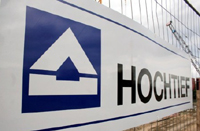Capital News
Wirecard AG: This Company is beyond Payments

The only thing unfortunate about his trip out of the penal institution is the timing. After all, Wirecards´s creditor´s meeting is taking place at the same time in Munich´s Löwenbrauhaus. The total debt of Wirecard is expected to exceed 3bn EUR, while the around 11,500 creditors even registered claims of over 12bn EUR.
However, the creditors will probably not expect a high quota on these claims, since the proceeds from the sale of assets to date have been low. Nonetheless, there is an interesting feature of this process many shareholders are not aware of. In the event of bankruptcy, shareholders´ assets are usually lost. But here we are talking about fraud. This means that damage claims from shareholders are also possible. Hopefully, all institutional investors realized this chance to recover a part of the money lost. Because of the critical attention paid to the events surrounding Wirecard, I am sure that BaFin will ask questions about it during the next routine audit, or maybe not, who can already know that today?
HOCHTIEF AG: Values realized in Australia
 In July, HOCHTIEF informed that CIMIC Group (77.1% HOCHTIEF participation at the time) was in advanced negotiations with funds advised by Elliott Advisors (UK) Limited regarding the potential investment by Elliott into 50% of the share capital of Thiess, the world´s largest mining sector services provider, which would provide joint control of Thiess to CIMIC and Elliott. In October, CIMIC Group (HOCHTIEF participation 77.4% at the time) announced the conclusion of the agreement regarding the acquisition of a 50% equity interest in Thiess by Elliott.
In July, HOCHTIEF informed that CIMIC Group (77.1% HOCHTIEF participation at the time) was in advanced negotiations with funds advised by Elliott Advisors (UK) Limited regarding the potential investment by Elliott into 50% of the share capital of Thiess, the world´s largest mining sector services provider, which would provide joint control of Thiess to CIMIC and Elliott. In October, CIMIC Group (HOCHTIEF participation 77.4% at the time) announced the conclusion of the agreement regarding the acquisition of a 50% equity interest in Thiess by Elliott.
The transaction comes with some interesting peculiarities. The partners will jointly control Thiess under a Shareholders´ Agreement. It also includes future share transfer options including a potential IPO or sale to a third party, and an option for Elliott to sell its interest in Thiess to CIMIC between three and six years from completion at the lower of the sales price or fair market value then, and a guarantee from HOCHTIEF.
The consideration for the sold 50% in Thiess implies an enterprise valuation of approx. 4.3bn AUD, subject to certain adjustments. The transaction will therefore generate cash proceeds of 1.7bn to 1.9bn AUD and is expected to reduce CIMIC´s factoring balance by approx. 0,7bn AUD its lease liability balance by approx. 0.5bn AUD. CIMIC calculates with a pre-tax gain of approx. 2.2bn AUD, and a post-tax gain of approx. 1.4bn AUD.
Following the completion of the agreement, which is subject to customary conditions, CIMIC´s investment in Thiess will be recorded as an equity-accounted joint venture.
Investors reacted positively to the news. However, the publication left one important question open: When do the parties expect the transaction to be completed?
Rocket Internet SE: The perfect Application of a Business Model
It had all started so well in 2014. An innovative team presented a convincing business model, and the market cap of nearly 7bn EUR by the end of the first trading day confirmed the prospect of a happy future for all investors. Unfortunately, the business idea soon encountered unexpected challenges, and so did the share price. The company managed to get some interesting transactions off the ground, but from the bird´s eye view, these were just isolated lighthouses that occasionally illuminated the prevailing gloom.
In retrospect, this development was no surprise. Evil tongues have sometimes referred to the business model as a copy machine – identify successful implementations of easy to copy models, and try to make it better. Maybe that´s not the whole secret. Many investors did not realize that Rocket´s business model can also be classified as a copy, and that is falling on their feet now. What exactly should be the particular benefit of providing growth capital for “rocket-fueled” startups in a market already flooded with capital?
It looks like the initiators of Rocket Internet finally found an answer to this question after six years of intense contemplation: Delisting. In September 2020 the company announced the decision of the Management Board to offer to the company´s shareholders to purchase all shares, by way of a public delisting self-tender offer. This offer is designed to satisfy the criteria for a revocation of the shares´ admission to trading on the regulated market of the Frankfurt Stock Exchange. Shares held by Global Founders GmbH (45.11% of the share capital) and Mr. Oliver Samwer (4.53% of the share capital) will not be acquired under the offer.
There is a good reason for withdrawing from the listing, as the announcement explained: “Rocket Internet is better positioned as a company not listed on a stock exchange. The use of public capital markets as a financing source as essential parameter for maintaining a stock exchange listing is no longer required and adequate access to capital is secured outside the stock exchange.” But here´s my question: Why didn´t they put this information into the IPO prospectus in 2014? Anyhow, investors are reminded that this business model did not create wealth, it only redistributed money.
Merck KGaA: Perseverance pays off
 Among the three large German chemical companies, Merck KGaA has achieved the top position with a market capitalization of currently over 56 bn EUR, while BASF remained behind with 52bn EUR and Bayer with a market ca of 47bn EUR still has to do some catching up. A keen sense of timing and trends certainly helped shape the recent success of Merck.
Among the three large German chemical companies, Merck KGaA has achieved the top position with a market capitalization of currently over 56 bn EUR, while BASF remained behind with 52bn EUR and Bayer with a market ca of 47bn EUR still has to do some catching up. A keen sense of timing and trends certainly helped shape the recent success of Merck.
But luck and perseverance are also among the success factors, which applies in particular to legal disputes. For example, Merck is involved in a US patent dispute with Biogen Inc. in the US. Biogen sued Merck KGaA for damages in connection with a patent infringement caused by Merck´s product Rebif before the U.S. District Court New Jersey, Newark. Merck defended itself against the allegations and brought a countersuit claiming that Biogen´s patent is invalid. In February 2018 a jury declared Biogen´s patent invalid vis-á-vis Merck. This jury verdict was overturned by the District Court Judge, who upheld the validity of Biogen´s patent. Merck filed a complaint with the U.S. Court of Appeals for the Federal Circuit against this ruling.
On September 28 2020 the U.S. Court of Appeals for the Federal Circuit set aside the decision of the District Court Judge, invalidated Biogen´s patent, and instructed the District Court to reinstate the jury verdict. This decision allowed Merck to reverse provisions for the patent dispute proceedings in the amount of 365m EUR. The release contributed significantly to the rise of the Q3 EBITDA by 0.6m EUR to 1.7bn EUR.
TRATON SE: Clear Communication helps to reach a Goal
TRATON´s shareholders experienced a surprising outcome to a poker game. The story begins in January his year when TRATON submitted a proposal to acquire all outstanding shares in Navistar International Corporation at 35 USD per share in cash. At the time, TRATON owned already 16.8% of Navistar, so that the consideration to be paid would have amounted to 2.9bn USD.
Strategically, the takeover offer made sense given that the US-market is currently largely a blank slate for TRATON. For many manufacturers, North America is the most profitable market, but so for TRATON had not had direct access to this opportunity. In other words, a completely new world was to be opened up here. And that is exactly the logic Navistar understood. This also seems to be the reason why no progress was discernible over a longer time. Finally, TRATON gave in and raised the offer price to 43 USD per share.
Some investors in Navistar still had higher expectations so that for TRATON the question arose as to whether the previous approach made sense, followed by the information that the offer would expire if not accepted by Friday, October 16th. On this day, TRATON and Navistar reached agreement in principle that TRATON will acquire by merger all shares in Navistar not already held by TRATON at 44.5 USD per share. And since then there has been progress. In November, a merger agreement has been signed, and the closing of the transaction is expected to take place later in 2021 (subject to the usual closing conditions).















